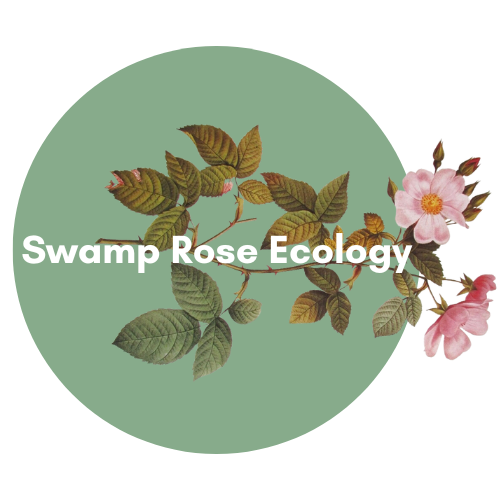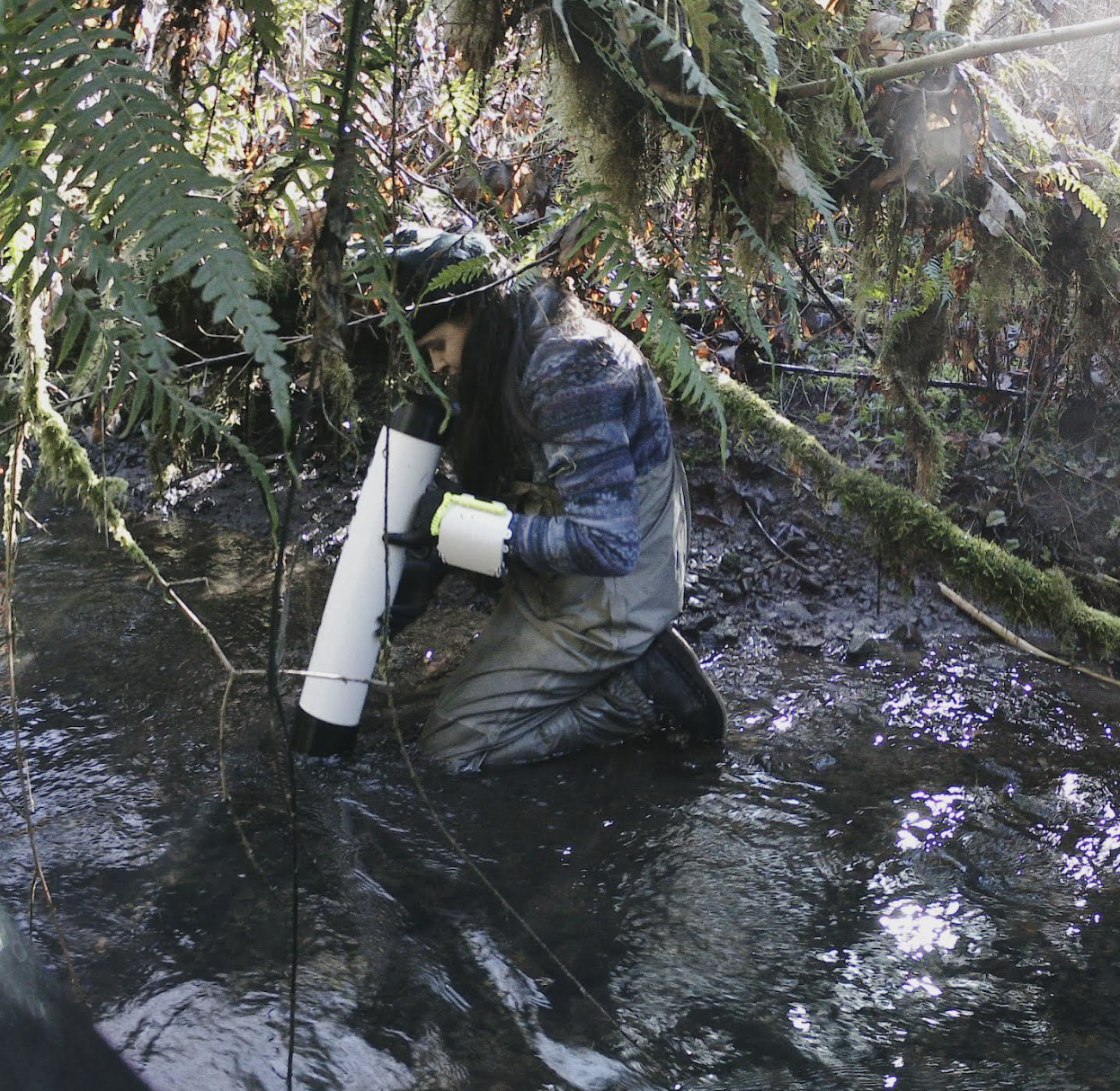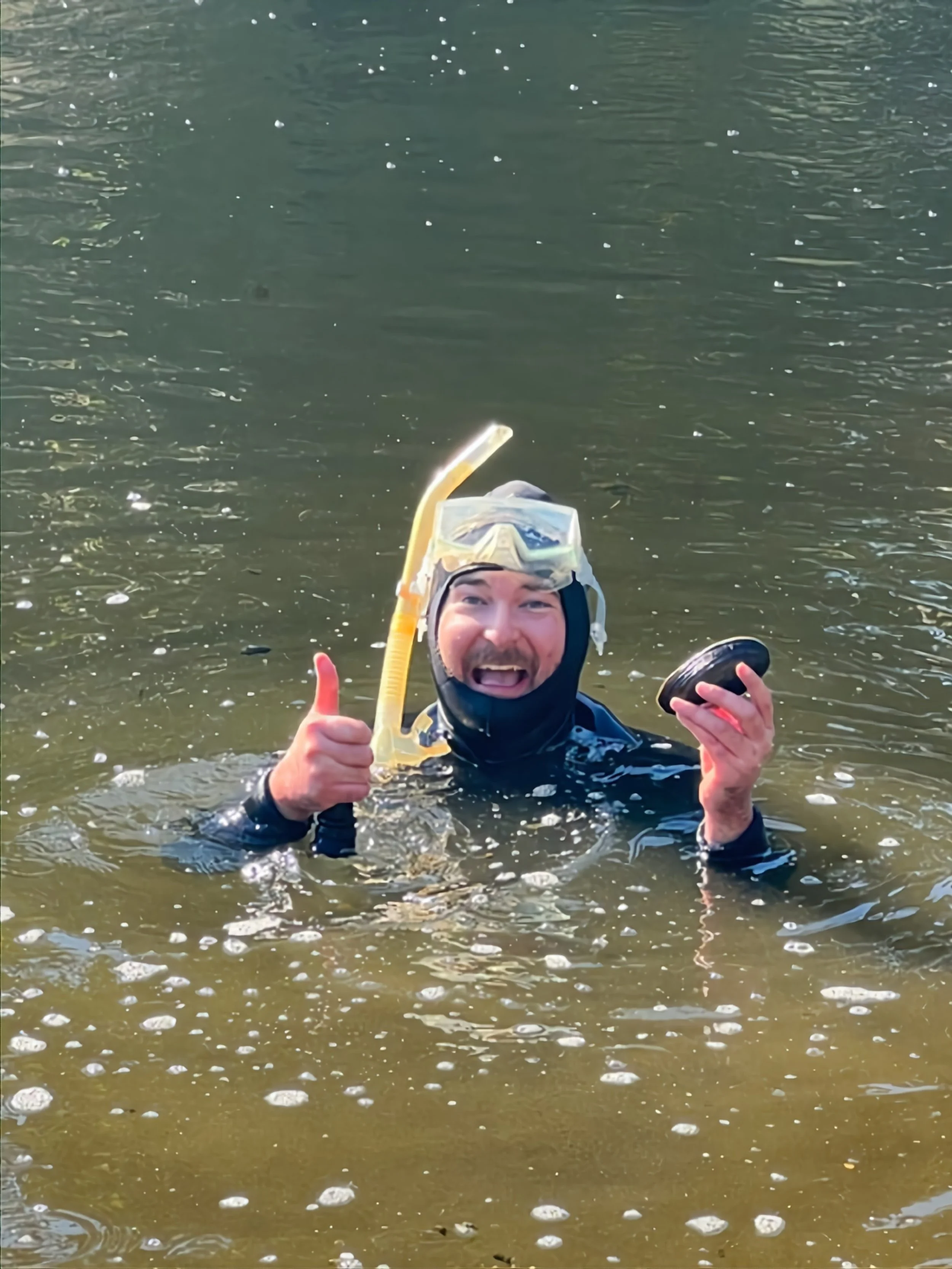
Fingernail Clams
Fingernail clams (of the genera Sphaerium and Pisidium) are poorly known even amongst invertebrate biologists. Not to be confused with invasive Corbicula clams, these extremely rare native species can be found throughout the Pacific Northwest, sometimes sharing habitat with freshwater mussels. Like mussels, they clean water in systems that they are found in by filter feeding. Despite their small size, fingernail clams can filter substantial amounts of water due to having heavily concentrated populations with a relatively high biomass when they are present.
At the time of this writing, Swamp Rose is the only firm on the West Coast that surveys for and is capable of identifying fingernail clams.
Mussels as ecosystem engineers and their role in salmon habitat
Freshwater mussels play a pivotal role in creating and maintaining optimal habitats for salmon. These bivalves act as natural water purifiers, filtering out particulates, excessive nutrients, and pollutants from the water. In doing so, they enhance water clarity and quality, facilitating the growth of aquatic plants that provide essential cover for juvenile salmon. Mussels also stabilize streambeds with their buried, anchoring presence, reducing sedimentation and erosion that can smother salmon eggs. Additionally, their nutrient recycling processes help in nourishing the base of the food web, indirectly supporting the food sources that salmon rely upon. Thus, the health and abundance of freshwater mussels directly influence the quality of salmon habitats and, by extension, salmon populations. More resources on native freshwater mussels can be found through the Pacific Northwest Native Freshwater Mussel Workgroup at pnwmussel.org.
Risks of Habitat Restoration to Freshwater Mussels in the Pacific Northwest
While habitat restoration activities aim to improve or re-establish natural environments, some of these interventions can inadvertently harm native Northwestern freshwater mussels, which are present in a diverse array of water bodies throughout the region (even small ones such as ponds and first-order streams). Some risks include:
Physical Disturbance: Restoration activities, especially those involving ground disruption, can physically damage or kill mussels by crushing them or otherwise harming their beds.
Sedimentation: Sedimentation in water bodies can be increased by activities such as planting in riparian and marginal areas or erosion connected to delayed revegetation, smothering mussels and their habitats. High sediment loads can clog the gills of mussels and interfere with their feeding.
Water Quality Changes: Restoration actions, like altering waterways or introducing new plants, can change the chemical composition of the water, potentially making it unsuitable for mussels. Changes in pH, temperature, or the introduction of pollutants can affect mussel populations adversely.
Alteration of Flow Dynamics: Modifying waterways can change the flow patterns and velocities, which might interfere with the life cycle of mussels, especially the dispersal of their larvae that rely on specific flow conditions.
Introduction of Invasive Species: In some cases, restoration activities might inadvertently introduce or promote the spread of invasive species, which can outcompete or prey on native mussels.
Swamp Rose Ecology's Mussel Conservation Services
Surveying for Freshwater Mussels:
We recommend the identification and protection of freshwater mussel populations before any restoration activity in habitats that they may be present, which can be virtually any perennial body of water over an inch deep. Using standardized protocols, our field staff locates individual mussels and mussel beds in and uses the collected data to determine information such as species presence, population density, age distribution, and overall health metrics.
Designing Restoration Plans Around Mussels:
In addition to mussel surveys, Swamp Rose offers habitat restoration planning and implementation that accounts for these ecologically foundational species.
Avoidance: Wherever possible, we design projects to avoid areas with high concentrations of mussels altogether.
Timing: Restoration activities are scheduled during times when mussels are least vulnerable, such as outside their reproductive periods.
Best Management Practices (BMPs): We employ BMPs to minimize erosion, sedimentation, and other potential impacts. This may include minimizing in-channel work near mussel beds, revegetating quickly to prevent erosion, and salvaging/relocating mussels if absolutely necessary.
Adaptive Management: Post-restoration, we monitor mussel populations and health, making necessary adjustments to ensure their long-term viability.
Educational Initiatives: Swamp Rose Ecology believes in the power of community awareness. By educating stakeholders and the public on the importance of freshwater mussels, we foster a collaborative approach to their protection. We also offer workshops for organizations or individuals interested in learning how to survey for and identify mussels and/or incorporate them into restoration plans.
Salvage: If impacts to mussels can absolutely not be avoided for projects like barrier removals, we offer mussel salvage and relocation services. There is typically mortality involved with salvage projects and they should be avoided if there are any sensible alternatives.



